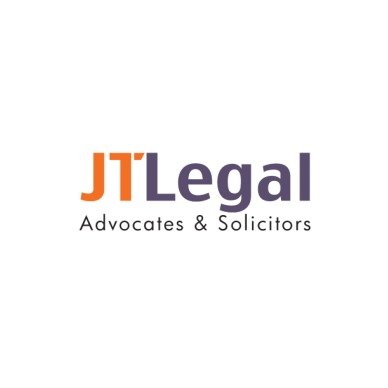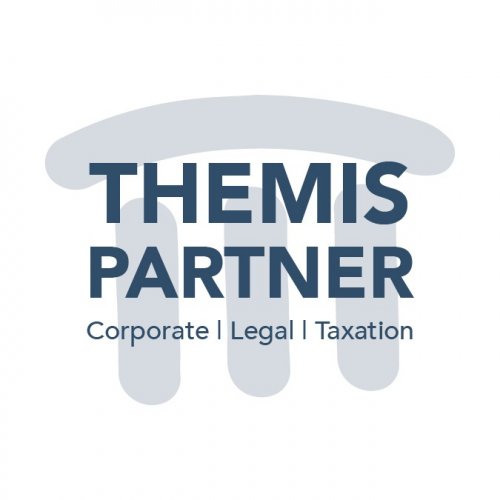Best Tax Increment Financing Lawyers in Marina
Share your needs with us, get contacted by law firms.
Free. Takes 2 min.
List of the best lawyers in Marina, Singapore
About Tax Increment Financing Law in Marina, Singapore
Tax Increment Financing (TIF) is a public financing method that is used for subsidizing community improvement projects, infrastructure improvements, and economic development efforts in certain regions. In Marina, Singapore, TIF is employed to stimulate redevelopment in underperforming areas by leveraging future tax revenue increases. The premise is to use the projected increase in property taxes generated by a new development to pay for initial improvements and public infrastructure. This method helps to revitalize stagnant neighborhoods without immediately increasing taxes on residents.
Why You May Need a Lawyer
Hiring a lawyer can be invaluable when navigating Tax Increment Financing in Marina, Singapore, for several reasons:
- Understanding Complex Regulations: TIF involves intricate financial and legal regulations that require expert interpretation.
- Securing Approvals: A lawyer can assist you in obtaining the necessary government approvals and documentation for your project.
- Negotiating Terms: Legal experts aid in the negotiation process with local authorities to secure favorable terms for financing.
- Addressing Disputes: In the event of legal disputes or challenges, your lawyer can provide representation and counsel.
- Compliance: Ensuring compliance with all local laws and obligations related to TIF is crucial to avoid penalties.
Local Laws Overview
The application of Tax Increment Financing in Marina, Singapore, must adhere to specific local laws and guidelines. Key aspects include:
- Eligibility Criteria: Projects must meet certain criteria to qualify for TIF, including demonstrating potential for substantial economic development.
- Zoning Regulations: Developments must comply with local zoning laws and land use regulations.
- Approval Process: The local government has established protocols for the submission and review of TIF proposals.
- Transparent Reporting: There are mandatory reporting requirements to ensure transparency and accountability in the use of TIF funds.
Frequently Asked Questions
What is Tax Increment Financing (TIF)?
Tax Increment Financing is a method used by municipalities to fund development projects, using future tax revenues generated by increased property values to pay for current improvements.
Why is TIF important for Marina, Singapore?
TIF provides a mechanism to spur economic growth and infrastructure development in underdeveloped areas without raising current taxes on residents.
Who can apply for TIF?
Developers, property owners, and local governments in designated redevelopment areas usually qualify to apply for TIF funding.
What types of projects can be financed through TIF?
Typical projects include urban redevelopment, public infrastructure improvements, commercial revitalization, and affordable housing projects.
How does TIF impact local taxpayers?
TIF aims to enhance economic development without immediate tax hikes, potentially leading to higher property values and community enhancements benefitting residents long-term.
Are there risks associated with TIF?
Yes, risks include project failure leading to insufficient tax increments to cover the improvement costs, affecting local government finances.
What are the benefits of TIF?
Benefits include attracting new businesses, increasing employment opportunities, boosting local economies, and improving community infrastructure and amenities.
Can residential projects be developed under TIF?
Yes, residential projects, especially those addressing affordable housing needs, can qualify for TIF funding under certain conditions.
How long does a TIF district last?
TIF districts usually have a lifespan of 20 to 25 years but can vary based on the specific terms agreed upon in the development plan.
What happens if the TIF project does not increase tax revenue as expected?
In such cases, the financial responsibility may fall on the developer or the municipality to cover funding gaps, which can lead to reassessment of project viability.
Additional Resources
Here are recommended resources and organizations that can provide further assistance in the realm of Tax Increment Financing in Marina, Singapore:
- Urban Redevelopment Authority (URA): Provides guidance on planning and development regulations in Marina.
- Singapore Land Authority (SLA): Offers information on land management and property-related legal issues.
- Economic Development Board (EDB): Supports businesses in understanding potential economic incentives, including TIF.
- Legal Firms Specializing in Real Estate and Finance: Seek legal counsel from firms experienced in TIF and urban development projects.
Next Steps
If you need legal assistance in navigating Tax Increment Financing in Marina, Singapore, consider the following steps:
- Research: Gather as much information as possible about your prospective project and relevant laws.
- Consult a Lawyer: Engage with legal experts with experience in Singapore's TIF landscape to assess your case and options.
- Prepare Documentation: Work with your legal representative to prepare all necessary documentation for proposals and applications.
- Plan Strategically: Develop a comprehensive plan that considers financial projections, legal implications, and potential risks.
- Submit Applications: Follow the correct procedures to apply for TIF approval through local government channels.
Lawzana helps you find the best lawyers and law firms in Marina through a curated and pre-screened list of qualified legal professionals. Our platform offers rankings and detailed profiles of attorneys and law firms, allowing you to compare based on practice areas, including Tax Increment Financing, experience, and client feedback.
Each profile includes a description of the firm's areas of practice, client reviews, team members and partners, year of establishment, spoken languages, office locations, contact information, social media presence, and any published articles or resources. Most firms on our platform speak English and are experienced in both local and international legal matters.
Get a quote from top-rated law firms in Marina, Singapore — quickly, securely, and without unnecessary hassle.
Disclaimer:
The information provided on this page is for general informational purposes only and does not constitute legal advice. While we strive to ensure the accuracy and relevance of the content, legal information may change over time, and interpretations of the law can vary. You should always consult with a qualified legal professional for advice specific to your situation.
We disclaim all liability for actions taken or not taken based on the content of this page. If you believe any information is incorrect or outdated, please contact us, and we will review and update it where appropriate.









